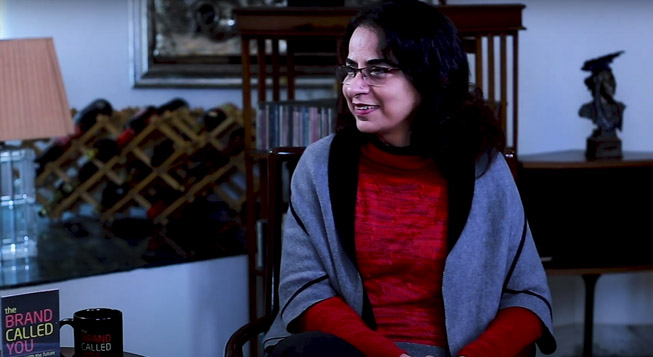Podcast: Play in new window | Download
Follow TBCY RSS
Nita Kapoor has the enviable distinction of having studied at the two most coveted institutes in the world – IIM Ahmedabad and Harvard Business School. She was formerly CEO at NewsCorp VCCircle, COO at Godfrey Phillips India Ltd and VP at DDB Mudra Communications Ltd. She has extensive work experience in advertising, communication, research, marketing, CSR, new product, business development, business operations, P&L, social media.
After spending a considerable amount of time in the corporate sector, Nita made the shift to the social sector in 2005. She contributes as advisor – marketing and social impact for Pro India (Waste Management), Rivir (design your shoes ), Centre for Excellence for Clean Air (CERCA IIT – D) and also teaches at a Government school. She has been the Non-Executive Director for Muskaan since 2008, an NGO dedicated to persons with Intellectual Disability .
With such an impressive body of work, it is no wonder that she was recognized as one of the Top 50 Marketing Women in India. She has further extended her abilities to angel investing and is amongst the Top 22 Women Angel Investors in India.
India being an omnichannel market
Nita is aware of how millennials are changing the markets, especially the digital segment. However, she believes that India will continue to be an omnichannel market. “Because of this, online and offline will always play watchdog on each other.” She says that offline is value adding to online today and not taking away from it.
She thinks that it is not only the size and diversity of the Indian population that encourages brick and mortar stores, but also their unique need to touch, feel and experience.
“I can say this with a little bit of information, having worked in 57 cities in the country. Indians love to interact and interface. We are not an isolation society. We are pretty outgoing. It could be as simple as going to a temple or a grocery store.”
On scaling up the HULT prize
Nita set up the HULT Prize in India. The Hult Prize is an annual, year-long competition that crowd-sources ideas from MBA and college students after challenging them to solve a pressing social issue around topics such as food security, water access, energy, and education. It is a partnership between Hult International Business School and the United Nations. HP is globally the largest crowd sourcing platform for social entrepreneurship.
Nita has been instrumental in setting up the HULT prize on the campuses of colleges in India, scaling it up from 50 to 125 institutions. The culmination of the event is at the UN, where the winning team is given an award of seed capital. Nita is soon going to be judging the HULT event.
On gender diversity and the role of women in the economy
Nita is a core member of the UNGC Gender Equality Panel, active member with FICCI Women on Corporate Boards and a lifetime member of G100 Network in New York. She is a strong advocate of gender diversity but is quick to point out that the focus needs to be not on competition amongst genders but on complimenting each other. She thinks that diversity is happening fast. Having worked extensively in the sphere at even grassroot levels, she points out that the ambition that a common housewife has today is much more than two generations back. Women are seeking financial freedom and are increasingly aware of it.
She also voices the contribution of women in economic growth.
“If you look at the unorganized sector, the share of women is very high. It is unpaid labour. Even in the development sector, it is dominated by women. And these women are not deterred by anything – time, place, kind of work etc.”
She points out other sectors dominated by women such as agriculture, agriservices, MFIs, NBFCs, retail are all dominated by women. Speaking about their work ethic, she says that women were denied opportunities for a long time. Now when they find it, they are keen to give it their all.
On angel investing
Some of the key things Nita observes before investing in a startup are the need it fulfills and the team behind it. She tends to go a little further and likes to be a part of the advisory of the startup. She looks at how a need can be harnessed by triggers to create revenue. Secondly, the team itself is very important to her. She looks for people who are not just gunning for the next round of funding but are passionate about the idea.
She discusses some of the mistakes she thinks startup entrepreneurs make.
“They fall in love with an idea and then they don’t fall out.”
She stresses on how important it is to sometimes pivot and change the plan, which a lot of entrepreneurs do not want to do. She also thinks that there is a lack of collaboration. For instance, a tech person may not appreciate what the marketing team does.


